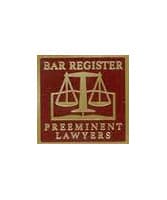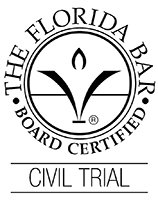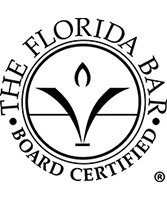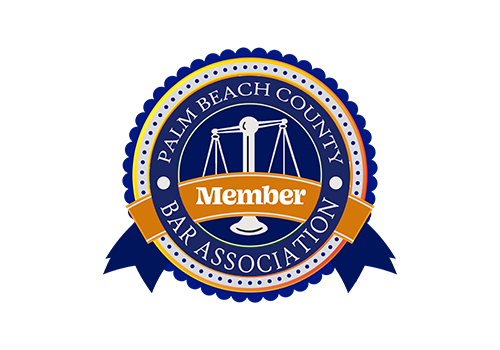
If you are involved in a car accident in Florida, it can be helpful to understand some of the unique state laws that apply to car accidents. When you’re seeking compensation, there are important legal details that may affect the amount of compensation you receive or your likelihood of receiving compensation at all.
If you have been involved in one of the hundreds of thousands of crashes on Florida roadways each year, you should know what your options are moving forward. This article will discuss some of the Florida car accident statutes you should be aware of.
What to Do Immediately After You Are in an Accident
Florida law requires all individuals who have been involved in a vehicle crash to stop at the scene of the accident and to help anyone who has been injured. When you stop, it is important to move your car off the road, so that the road is safe for others and emergency vehicles can get to the scene of the accident. If you are unable to move your car, you should call a towing service to move it.
While Florida law requires you to contact law enforcement if the damage caused by the accident exceeds $500, it is unlikely that you will be able to assess the cost of damage to the vehicles involved. Therefore, you should always contact law enforcement when you’re in a traffic accident so that a detailed police report can be filed.
While you are waiting for law enforcement to arrive, if you or a witness is able, you should take photos, videos, and get a detailed account of how the accident transpired written down. Getting the accident thoroughly documented this way, while the information is still fresh, will help support your claim and will be helpful to you and your lawyer down the road.
If your vehicle is damaged, you should have it towed to a body shop you trust and get an written estimate for the total cost of repairs.
Florida’s No-Fault Insurance System
Florida is a no-fault insurance state. What this means is that no matter who was at fault for the accident, the driver of each vehicle involved must file a claim with their own insurance company before they can pursue compensation elsewhere.
If your insurance company does not cover all your expenses for a significant injury, and you meet certain criteria, you may then be able to seek compensation through a lawsuit. If your injuries are very severe, you may be entitled to compensation from the other driver or their insurance company, depending on the specifics of your case.
Consulting with a lawyer can help you evaluate whether or not you should file a claim.
Florida Insurance PIP and PDL Rules
Every Florida driver is legally required to maintain a certain level of car insurance coverage. This includes a minimum $10,000 of personal injury protection (PIP) and $10,000 of property damage liability (PDL).
PIP coverage is intended to be used to cover your own medical expenses and lost wages or those of a passenger. To receive this compensation, you must seek treatment for your injuries within fourteen days of the accident. Therefore, it is important to seek medical treatment as quickly as possible after an accident.
Some injuries may not be apparent immediately after an accident. Seeking medical help can help ensure you remain eligible for PIP benefits even if your injuries don’t show up right away.
PDL insurance covers damage to other people’s property that you are liable for. For example, if you cause an accident and damage someone else’s vehicle, you are liable for that damage. Your PDL insurance will cover the cost of repairs to the other person’s car, but not your own.
Dealing with Insurance Companies after an Accident
After an accident, you may receive a settlement offer from an insurance company. If their offer is not enough to cover the cost of your injuries or property damage, you can ask for more compensation. If bargaining with the insurance company fails, you should consult with a personal injury attorney. A lawyer can negotiate on your behalf or, if necessary, file a lawsuit.
Comparative Negligence in Florida Car Accident Cases
Car accidents most often occur due to the negligence of one or more divers. Negligence is defined as failing in one’s duty to maintain a reasonable level of safety or care.
When you are seeking compensation outside of the no-fault insurance system, you will need to prove that another individual was negligent, In order to recover compensation, you will need to prove that this negligence caused your injuries or losses.
There are, however, many cases where both parties involved in an accident were negligent. For example, if one driver was texting and the other ran a stop sign and they collided, both drivers would likely be at fault.
When both drivers are negligent, Florida uses a comparative negligence system (known as a pure comparative rule) to determine who is entitled to compensation and what proportion of the losses this compensation should cover.
Under this rule, juries will calculate the drivers’ damages and the percentage of fault for each driver using all relevant evidence. Then, under this rule, the plaintiff’s (person filing a lawsuit to seek compensation) award will be reduced by the percentage of fault the jury found them responsible for.
For example, if you’re speeding and another driver makes an illegal U-turn, a jury may find you 30% at fault and the other driver 70% at fault. If the accident caused you both $10,000 in damages, you would be responsible for $3,000 of the other driver’s losses and the other driver would be liable for $7,000 of your losses. Even if one driver causes the vast majority of the fault, say 95%, they would still be entitled to having 5% of their losses paid for.
Florida Car Accident Statute of Limitations
 After you have been involved in a car accident, you have a limited window of time to pursue compensation for your losses. The statute of limitations governs how much of a window you have to make a claim.
After you have been involved in a car accident, you have a limited window of time to pursue compensation for your losses. The statute of limitations governs how much of a window you have to make a claim.
When you are involved in an accident, Florida’s four-year personal injury and property damage statute of limitations may apply. While you will typically have four years from the date of the accident to file a claim, there are exceptions to this rule under certain circumstances.
Contact a West Palm Beach Car Accident Lawyer for Help
If you or a loved one has been in a car accident that resulted in serious injuries, death, or other losses, and you’re suffering from the financial, emotional, and mental toll the whole experience, then you should seek legal counsel immediately for help with compensation.
Contact the West Palm Beach car accident lawyers of Schuler, Weisser, Zoeller, Overbeck & Baxter P.A. today at 561.689.8180 to schedule a free consultation. You can also contact us through our website’s live online chat feature. Whether you’re in West Palm Beach, or elsewhere in Florida, we’re committed to helping you get the compensation you deserve.










